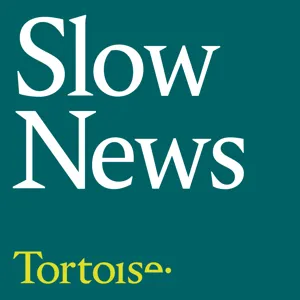UPDATE: The UK's Recession Is Over, Biden Weighs China Tariffs, & Netanyahu's Defiant Warning

Your morning briefing, the business news you need in just 15 minutes.
On today's podcast:
(1) Britain bounced back strongly from a shallow recession, providing some relief for Prime Minister Rishi Sunak who has so far struggled to deliver on his promise to grow the economy.
(2) President Joe Biden’s administration is poised to unveil a sweeping decision on China tariffs as soon as next week, one that’s expected to target key strategic sectors while rejecting the across-the-board hikes sought by Donald Trump, people familiar with the matter said.
(3) Israeli Prime Minister Benjamin Netanyahu struck a defiant tone against President Joe Biden after the US withheld a shipment of bombs as a warning to its top Middle East ally not to invade the southern Gaza city of Rafah.
(4) After months in which the Bank of England and markets have been at loggerheads over the direction of interest rates — with the US Federal Reserve more powerful in shaping expectations than words from the UK central bank — they have now fallen roughly into line.
(5) Arm Holdings shares tumbled after the chip designer gave a lukewarm revenue forecast for the fiscal year, raising concerns that the tech industry’s artificial intelligence spending spree is slowing.
(6) In a small side room, roughly 40 people, including some of Wall Street’s most senior executives of color, crowded around a rectangular array of tables for an invitation-only panel and confronted hedge fund manager Bill Ackman for his attacks on diversity, equity and inclusion, or DEI, initiatives, according to five attendees.
See omnystudio.com/listener for privacy information.














